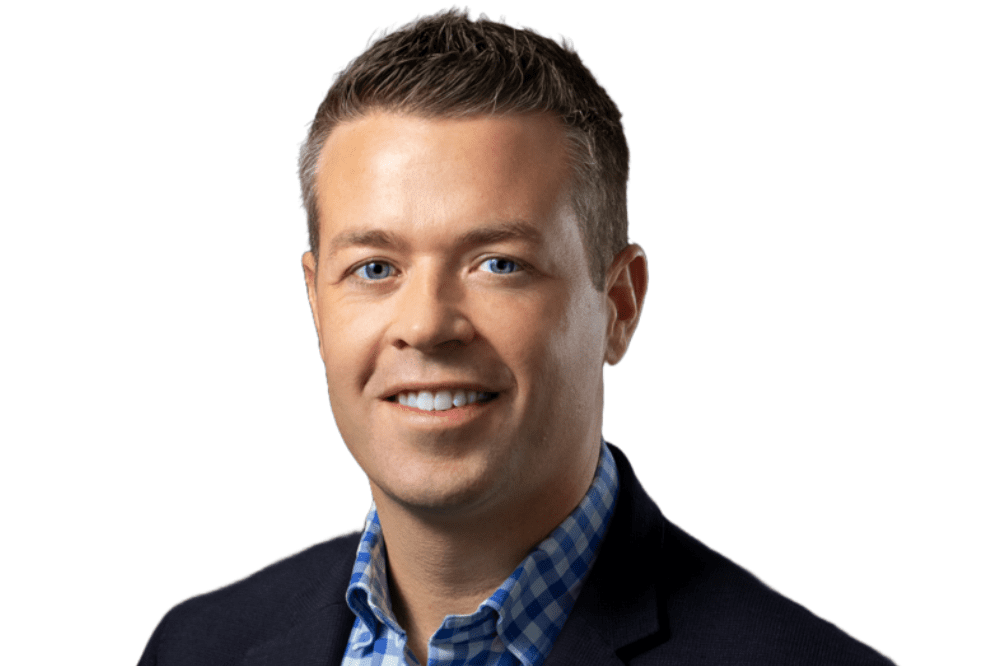How one energy expert stays on top of the market

How one energy expert stays on top of the market | Insurance Business America
Insurance News
How one energy expert stays on top of the market
From nuclear debates to lithium extraction
Insurance News
By
Emily Douglas
It’s Trevor Gilstrap’s (pictured) thirst for knowledge that’s driven both his professional and personal life. A concept of intellectual curiosity that’s reflected in the dynamic nature of his specific industry.
As the senior vice president and national energy practice leader at AssuredPartners, Gilstrap’s approach is a principle ingrained in him from his early career at a small independent firm – where the CEO consistently emphasized the importance of seeking knowledge: “to have intellectual curiosity, to always be out there looking for more.”
For Gilstrap, this manifests as pushing the boundaries when it comes to diversity and inclusion in the energy sector. Specifically, North Dakota’s conversion of traditionally flared gas to power Bitcoin mining operations, and the transformation of landfill waste into clean hydrogen.
“I don’t think that anyone can be the one-stop source of knowledge in this industry,” he said. “If you’re not actively trying to expand your understanding of what’s taking place, you’re going to get left behind.”
The importance of on-site visits
But if you want to instigate real change, you need to be on site. Emphasizing the importance of firsthand experience, Gilstrap and his team regularly engage in field visits, understanding operations like fracking and swabbing up close.
“We want see those operations take place,” he said. “I think it gives us a better perception of what actually [happens] and allows us to explain that risk in an even better manner to the underwriters that we work with.”
And in the energy sector, there’s mounting pressure around ESG reporting – whether that be from local or federal governments, the general public, or even fellow insurance industry peers. According to data from PwC, 80% of global investors said how a company manages ESG risks is an important factor in decision making – while 75% of investors add that organizations should address ESG issues even if it impacts short-term profitability.
The nuclear debate
Even within the ESG space, the topic of nuclear still seems to have a miasma of uncertainty around it – though Gilstrap puts that down to public perception.
“On the insurance side of things, I think underwriters are hungry for a diversification from oil and gas to appease shareholders,” he said. “There’s certainly an appeal for industries like nuclear in that regard, but I don’t think insurance is the biggest blocking point for the advancement of nuclear as a potential replacement for power generation from fossil fuels. First that industry has to break down the public perception and stigma that exists with nuclear.
“Everyone is aware of some of the more catastrophic nuclear meltdown events that have taken place, and until you can get the generalized public more comfortable that’s not going take place again, I don’t know that nuclear has the ability to go anywhere.”
Lithium extraction
Gilstrap also touches on the innovative potential of extracting lithium from fracking wastewater, viewing it as a significant environmental and economic advancement. This process could revolutionize lithium extraction, making it more sustainable and transforming wastewater from a liability into an asset.
“You’re reducing the strain on traditional mining resources, potentially decreasing the ecological footprints,” he explains.
This innovation, he believes, would require the insurance industry to develop new solutions to address the unique risks associated with this technology. Another key development on the horizon in 2024 is cannabis legalization and its complexity within the insurance industry.
“Cannabis in general is extremely difficult,” said Gilstrap. “On the one hand, you’ve got insurers that have to navigate an incredibly complex and oftentimes conflicting patchwork of state and federal regulations. They’re having to adjust their underwriting practices and develop new policies associated with the cannabis business. On the other hand, I do think that there’s opportunities for the insurance side of things as well. As this market continues to expand, particularly for product liability, property insurance and workers’ comp, I think there’s a real opportunity for insurers to innovate and develop specialized coverage solutions.”
Central to Gilstrap’s philosophy is the belief in specialization within the insurance industry. Ultimately, he advises professionals to develop expertise in specific niches, acknowledging the breadth and complexity of the energy sector.
“It’s difficult to be a Jack of all trades,” he said. “But significantly easier to call yourself, and embrace being an, energy expert. I absolutely love the industry, it’s where I spend most of my time.
“I also recognize that the world is changing – the perception of oil and gas is changing. For us to continue to stay on top of these advancements we need to be willing to open and expand our horizons. To understand some of the nuances that come along with those alternative energy sources – and I always like a challenge.”
Related Stories
Keep up with the latest news and events
Join our mailing list, it’s free!






